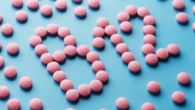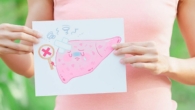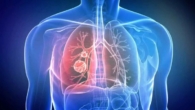
Named chemical substances that destroy the human endocrine system
0
Chemicals we get from the outside, they are called “hormonal destroyers”, as they disrupt all the basic functions of our body. A specialist in the field of pediatric endocrinology, professor, Dr. Atilla Buyukgebiz told the publication's correspondent about one of the most important problems of health care in the last 30 years and ways to protect it.
Chemical substances contained in almost everything, from the products we consume to the perfumes we use, harm our hormonal background, draws attention to the specialist in the field of pediatric endocrinology, professor, Dr. Atilla Buyukgebiz. “This situation provokes such diseases as premature puberty, diabetes, cancer,” the expert warns.
Our endocrine system and hormones control all the basic functions of our body, such as growth, development, reproduction, metabolism. And chemicals that we get from the outside, called “hormonal disruptors”, undermine this process. A specialist in the field of pediatric endocrinology, professor, Dr. Atilla Büyükgebiz talked about ways to protect against the harmful effects of “hormonal disruptors”, which are considered one of the most important health care problems in the last 30 years…
< strong>How can we protect ourselves?
– We should wash our hands with soap more often. Washing hands, especially before eating, prevents harmful substances from entering the body.
– When using products of animal origin, do not forget that harmful chemicals may remain in the fatty tissue of animals. A diet consisting mainly of vegetables and fruits is more useful. However, it is necessary to ensure that those of them are grown in their season with the use of organic fertilizers. Strawberries, apples, cherries, spinach, grapes, potatoes, peppers, peaches, which are most exposed to synthetic pesticides, must be organic. It should be remembered that pesticides increase the risk of diseases of the nervous system, thyroid gland and cancer.
When eating fish…
– Many metals, such as lead, nickel, mercury, negatively affect life in the seas. Deep-sea fish such as haddock, mullet, sea bass, and flounder, as well as fish that feed on these species, such as tuna and swordfish, have higher levels of heavy metals. Since such species as anchovy, bonito, horse mackerel live on the surface, the content of heavy metals in them is lower. Exposure to heavy metals causes allergic reactions, kidney and liver pathologies, negatively affects the functions of the nervous system and brain.
Perfume and detergents are also dangerous
– Cosmetics and detergents also contain chemicals. In this regard, you can give preference to natural creams, as well as natural detergents and washing powders. For example, in perfumery, phthalates are hormone disruptors and in large quantities are harmful to health. For this reason, care must be taken not to spray perfume products uncontrollably and avoid direct contact with the skin. Children should also not use unnaturally scented products.
Stay away from plastic
– Do not use plastic containers when heating food in the microwave oven. Such containers cannot be washed in dishwashers either. When heated, chemicals in plastic can mix with food and water, causing harm to the body. Food and water should not be stored in plastic containers and plastic bottles. Glass or stainless steel should be preferred instead of plastic.
– It is recommended to use fresh products, not ready-made canned goods. Biophenols, used to prevent rust on cans, mimic estrogenic effects and increase the risk of obesity, diabetes.
Be careful with non-stick pans!
– In Teflon pots and pans, instead of perfluorooctanoic acid (PFOC), which damages the kidneys and liver, a generally harmless substance called “polytetrafluoroethylene” (PTFE) began to be used. However, at temperatures above 300 degrees, this substance can also be toxic. Do not heat Teflon dishes empty, there must be at least oil in them. Use low, medium heat.









Leave a Reply